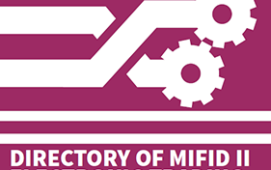For those of you put off by the thought of wading through the responses received by the Office of Financial Research (OFR) last week on the subject of legal entity identification (or even reading through our rather lengthy and comprehensive guide on the subject), here are a few headline numbers to make it more easily digestible…
There are 33 separately listed responses in the OFR’s consultation docket, however, only 30 of these represent responses from organisations or individuals that have not already contributed to other group responses. In terms of participants and contributors, the breakdown is as follows: 10 US focused associations; 12 internationally focused associations; nine vendors; two academics; and six that can be classed as ‘other’.
Out of these 30 responses, nine are particularly US focused, with proposals related to a US specific (rather than an international) context. These particular responses have been submitted by US-based individuals or by US focused associations, such as the US Mortgage Bankers Association (MBA) and the American Council of Life Insurers (ACLI). The dominant theme of these responses could be categorised as confusion: there is an overarching call for more clarity about the terms used within the proposals and the entities that will be covered by the new standards. The responses from the US focused associations are also dominated about concerns related to their particular verticals. For example, the MBA’s response highlights the paper-based nature of the real estate finance industry and therefore the potential costs of moving to an electronic ID system.
However, the American Bankers Association (ABA) response bucks both of these trends (and hence is not counted in the nine above), with its international focus and cross vertical and “inclusive” approach. It therefore falls into the internationally focused camp, which comprises of the 21 other responses.
Here are some numbers to indicate levels of support for various standards:
Direct reference to a standard needing to be global: 21
Support of ISO-based standards: 11
Support of GS1: 1 (no prizes for guessing who highlighted that one)
Support of/or reference made to Cabre: 2 (again, no prizes)
Support of D&B’s DUNS: 1 (three guesses…)
Direct support of Swift’s BIC (under ISO): 3
No preference for the standard at all: 14
Support of US focused standards (and the standards referenced): 3 (taxpayer ID numbers, Fed’s FDIC codes and something similar to the Nationwide Mortgage Licensing System & Registry codes)
The issuer/utility should be “non-profit”: 15
The issuer should not be “non-profit”: 7 (largely due to concerns about the operating costs of a government run monopoly)
There should be one global utility: 8
A federated approach, or more than one utility is better: 10
Vendors touting their own abilities (in various contexts): 9
So, what is the upshot of these numbers and what will the powers that be take away from this industry consultation exercise?
Well, it seems that the vast majority want the US regulatory community to coordinate with its international counterparts (and amongst its national brethren) to be able to create as globally focused a standard as possible. ISO came out on top with regards to a preferred method of standardisation and hence an ISO-based standard is likely to prove the most popular going forward.
The majority of those that took the time to address the issue of governance and operations, said they would like the utility to be non-profit, although a fairly high number were concerned about this issue. This might be cause for further debate over the coming months, as those opposed to such an idea elaborate on their concerns.
Another very interesting finding is the debate between whether there should be a single utility or multiple. The majority seem keen on more than one utility, or a federated approach being adopted. Euroclear, for example, noted that a more regional or local approach would ensure the utility was close enough to the market it is covering. However, the costs of either approach are bound to have a strong influence on which is carried forward and this will not be determined until a proper impact assessment is done.
One other key number that I have yet to mention is the number of respondents representing the Asian region directly, which stands at zero. This is disappointing given the likely bent towards a global solution (whether it be a single utility or multiple). Hopefully, the next steps will involve more of an outreach to firms and regulators in regions beyond Europe, potentially under the auspices of the G20.
PS If you’re trying to find the full list of responses and the regulations.gov website is proving to be a bit of a nightmare to navigate, best to search for (docket number) TREAS-DO-2010-0008. That way you’ll find all 33 documents related to the proposals.
Subscribe to our newsletter




